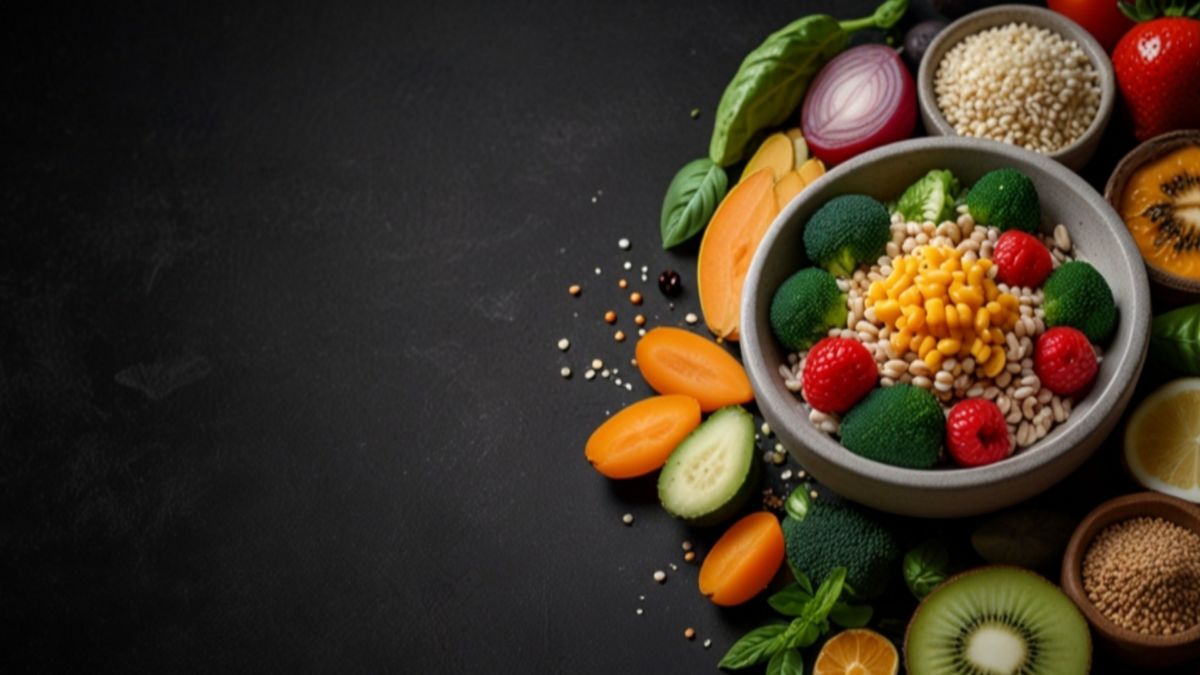
Best Foods to Boost Women’s Energy Levels
2 Min Read
Energy levels can fluctuate for various reasons, and many women often seek ways to boost their vitality throughout the day. Whether it's due to a busy schedule, hormonal changes, or dietary choices, maintaining optimal energy levels is essential for overall health and well-being. One of the most effective ways to enhance energy is through nutrition. This article explores the best foods to boost women's energy levels, helping you make informed dietary choices that support sustained vitality.
Understanding Energy Levels
Energy levels are influenced by several factors, including sleep quality, stress, physical activity, and nutrition. Women, in particular, may experience unique challenges related to energy due to hormonal fluctuations, menstrual cycles, and lifestyle demands. Understanding how food impacts energy can empower women to make healthier choices.
Food serves as fuel for the body, providing essential nutrients that help maintain energy levels. Consuming a balanced diet rich in specific nutrients can improve physical and mental energy, enhance mood, and promote overall wellness.
Key Nutrients for Energy Production
Before diving into the best energy-boosting foods, it's important to understand the key nutrients that contribute to energy production:
- Carbohydrates: The primary source of energy for the body, carbohydrates break down into glucose, which fuels cellular functions.
- Proteins: Essential for repairing tissues and muscles, proteins can also serve as an energy source when carbohydrates are low.
- Fats: Healthy fats provide a concentrated source of energy and are important for hormone production and brain function.
- Vitamins and Minerals: Nutrients such as B vitamins, iron, magnesium, and potassium play crucial roles in energy metabolism and oxygen transport.
1. Whole Grains
Whole grains are an excellent source of complex carbohydrates, providing sustained energy without the crash associated with refined grains. They are also rich in fiber, which aids digestion and keeps you feeling full longer. Here are some top whole grains to consider:
- Quinoa: This protein-rich grain is a complete source of amino acids, making it an excellent choice for energy and muscle repair.
- Brown Rice: A versatile grain that provides essential nutrients and sustained energy throughout the day.
- Oats: High in fiber and low on the glycemic index, oats can help maintain stable blood sugar levels, promoting steady energy release.
Incorporate whole grains into your meals by choosing whole-grain bread, pasta, or cereals. A warm bowl of oatmeal topped with fruits and nuts is a delicious and energizing breakfast option.
2. Leafy Greens
Leafy greens like spinach, kale, and Swiss chard are powerhouses of vitamins and minerals. They are rich in iron, which is crucial for oxygen transport in the blood, helping combat fatigue. Additionally, they provide a variety of antioxidants and phytonutrients that support overall health. Here are some benefits of incorporating leafy greens into your diet:
- High in Nutrients: Leafy greens are low in calories but packed with vitamins A, C, K, and folate, which contribute to energy metabolism.
- Hydration: Many leafy greens have high water content, helping to keep you hydrated, which is essential for maintaining energy levels.
- Versatile: You can enjoy leafy greens in salads, smoothies, or sautéed as a side dish.
Try adding spinach to your morning smoothie or preparing a kale salad with nuts and seeds for a nutrient-dense lunch option.
3. Nuts and Seeds
Nuts and seeds are nutrient-dense foods packed with healthy fats, protein, and fiber. They provide a quick energy boost and help keep hunger at bay. Some of the best options include:
- Almonds: Rich in vitamin E, magnesium, and healthy fats, almonds support energy production and brain health.
- Chia Seeds: These tiny seeds are high in omega-3 fatty acids and provide a great source of energy, especially when soaked in liquid.
- Walnuts: Packed with antioxidants and omega-3s, walnuts can help improve cognitive function and energy levels.
Incorporate nuts and seeds into your snacks by adding them to yogurt, salads, or oatmeal. A handful of almonds or a chia seed pudding can provide a satisfying energy boost between meals.
4. Lean Proteins
Incorporating lean proteins into your diet is essential for energy and muscle maintenance. Proteins are vital for repairing tissues and producing enzymes and hormones. Here are some great sources of lean protein:
- Chicken Breast: A low-fat protein source that is versatile and easy to prepare.
- Fish: Fatty fish like salmon and mackerel are rich in omega-3 fatty acids, promoting heart health and sustained energy.
- Legumes: Beans, lentils, and chickpeas are excellent plant-based protein sources that also provide fiber and essential nutrients.
Try incorporating grilled chicken into salads or making a lentil soup for a hearty meal that keeps your energy levels stable throughout the day.
5. Fruits
Fruits are nature's energy boosters, providing essential vitamins, minerals, and antioxidants. They are also a source of natural sugars, which can quickly replenish energy levels. Some top fruits to include are:
- Bananas: High in potassium and carbohydrates, bananas are an excellent pre-workout snack that provides immediate energy.
- Berries: Strawberries, blueberries, and raspberries are rich in antioxidants, promoting overall health and reducing inflammation.
- Apples: Apples contain fiber and natural sugars, making them a great snack to keep you energized.
Consider adding fruits to your breakfast, blending them into smoothies, or enjoying them as a healthy snack throughout the day.
6. Dark Chocolate
For those with a sweet tooth, dark chocolate can be a fantastic energy booster. It contains caffeine and theobromine, which can enhance alertness and improve mood. Here’s why dark chocolate can be a great addition:
- Rich in Antioxidants: Dark chocolate is loaded with antioxidants that combat oxidative stress and support overall health.
- Improves Mood: Consuming dark chocolate can stimulate the release of endorphins, improving mood and energy levels.
Opt for dark chocolate with at least 70% cocoa content for the best health benefits. Enjoy a small piece as an afternoon treat or incorporate it into your smoothies for a rich flavor.
7. Greek Yogurt
Greek yogurt is a delicious and versatile source of protein that can help boost energy levels. Unlike regular yogurt, Greek yogurt is strained, resulting in a thicker consistency and higher protein content. Here’s why it’s a fantastic choice:
- High in Protein: A serving of Greek yogurt can contain up to twice the protein of regular yogurt, making it an excellent option for muscle recovery and sustained energy.
- Probiotics: Greek yogurt contains live cultures that promote gut health, which can positively affect energy levels.
- Versatile Uses: Enjoy it plain, add fruits and nuts for a snack, or use it as a base for smoothies or salad dressings.
Consider topping Greek yogurt with berries and a drizzle of honey for a satisfying breakfast or snack that provides long-lasting energy.
8. Sweet Potatoes
Sweet potatoes are a nutrient-dense carbohydrate that can provide a stable source of energy. They are rich in complex carbohydrates, fiber, and essential vitamins. Here’s why sweet potatoes should be on your plate:
- Low Glycemic Index: Sweet potatoes have a lower glycemic index than regular potatoes, leading to more stable blood sugar levels and sustained energy release.
- Rich in Vitamins: They are an excellent source of vitamins A and C, which support immune function and overall health.
- Versatile Preparation: Sweet potatoes can be baked, mashed, or added to soups and salads.
Try baking sweet potatoes and topping them with black beans and avocado for a filling and nutritious meal.
9. Fatty Fish
Fatty fish like salmon, mackerel, and sardines are not only delicious but also provide essential nutrients that promote energy and overall health. Here’s why fatty fish are an excellent addition to your diet:
- Omega-3 Fatty Acids: These healthy fats help reduce inflammation and support brain function, which can enhance cognitive energy levels.
- High in Protein: Fatty fish provide a significant amount of protein, which is crucial for muscle maintenance and energy.
- Rich in Vitamins: They contain vitamin D and B vitamins, essential for energy metabolism.
Incorporate fatty fish into your meals by grilling salmon or adding sardines to salads for a nutritious and energy-boosting option.
10. Green Tea
Green tea is a refreshing beverage that offers numerous health benefits, including enhanced energy levels. It contains a moderate amount of caffeine and is rich in antioxidants. Here’s how green tea can help:
- Moderate Caffeine Content: Green tea provides a gentler caffeine boost compared to coffee, which can enhance alertness without the jitters.
- Rich in Antioxidants: The antioxidants in green tea, particularly catechins, can support overall health and energy.
- Boosts Metabolism: Green tea has been shown to increase metabolic rate, which can support energy expenditure.
Consider enjoying a cup of green tea in the afternoon for a refreshing and energizing beverage.
11. Eggs
Eggs are a powerhouse of nutrients and an excellent source of high-quality protein. They are also versatile and easy to incorporate into your diet. Here are some reasons to include eggs in your meals:
- High in Protein: Each egg contains around 6 grams of protein, providing a substantial energy source.
- Rich in Nutrients: Eggs are packed with vitamins B12, D, and minerals like selenium, which support energy production.
- Versatile Cooking Options: Eggs can be boiled, scrambled, poached, or used in baking.
Start your day with scrambled eggs and spinach for a protein-rich breakfast that sets the tone for sustained energy.
12. Hummus
Hummus, made from chickpeas, is a nutritious dip that can boost energy levels when paired with healthy snacks. It’s rich in protein and fiber, making it a great choice for sustained energy. Here’s why hummus is beneficial:
- Protein and Fiber: Chickpeas provide protein and fiber, helping to keep you feeling full and energized.
- Versatile Dip: Hummus pairs well with various vegetables, whole-grain pita, or crackers, making it a nutritious snack option.
Dip carrot sticks or cucumber slices into hummus for a healthy snack that provides a quick energy boost.
13. Avocado
Avocado is a nutrient-dense fruit packed with healthy fats, fiber, and essential nutrients. Here’s why avocados are a great addition to your diet:
- Healthy Fats: The monounsaturated fats in avocados support heart health and provide long-lasting energy.
- Rich in Fiber: Avocados contain fiber, which aids digestion and helps maintain stable blood sugar levels.
- Versatile Ingredient: Avocados can be added to salads, smoothies, or spread on whole-grain toast.
Try making guacamole or adding sliced avocado to your salads for an energy-boosting meal.
14. Berries
Berries such as blueberries, strawberries, and raspberries are not only delicious but also packed with antioxidants and essential nutrients that help boost energy levels. Here’s why you should incorporate more berries into your diet:
- Rich in Antioxidants: Berries are loaded with antioxidants that combat oxidative stress and reduce fatigue.
- Low in Calories: They are low in calories and high in nutrients, making them a great option for healthy snacking.
- Versatile Use: Berries can be added to smoothies, yogurt, salads, or enjoyed on their own as a refreshing snack.
Consider blending a mix of berries into your morning smoothie or enjoying them with Greek yogurt for a nutritious snack.
15. Conclusion
Boosting your energy levels doesn't have to be complicated. By incorporating these nutrient-dense foods into your diet, you can enhance your vitality and overall well-being. Remember that maintaining a balanced diet, staying hydrated, and listening to your body are key components of managing your energy levels effectively. As you explore these energy-boosting foods, consider keeping a food diary to track how different foods affect your energy levels. This can help you make informed choices and adapt your diet to meet your individual needs.
Embrace the journey towards healthier eating and discover how nourishing your body with the right foods can transform your energy levels and enhance your quality of life.


